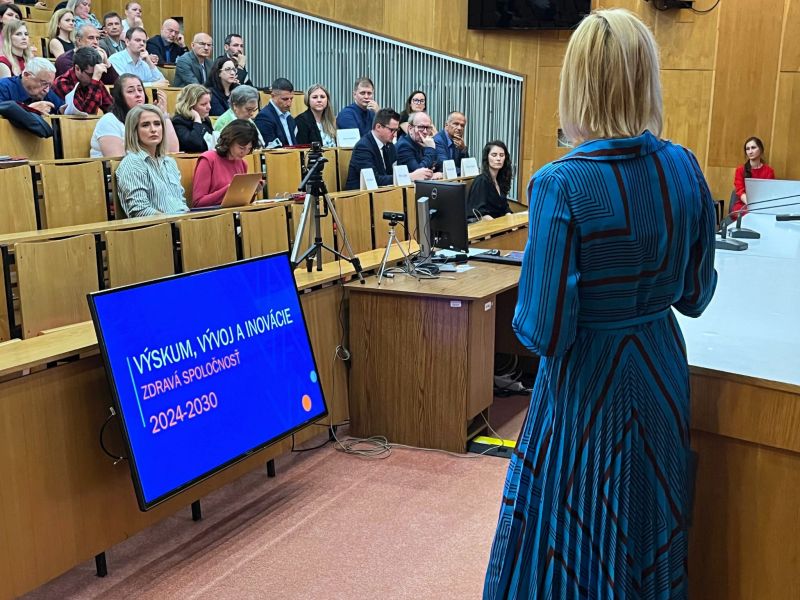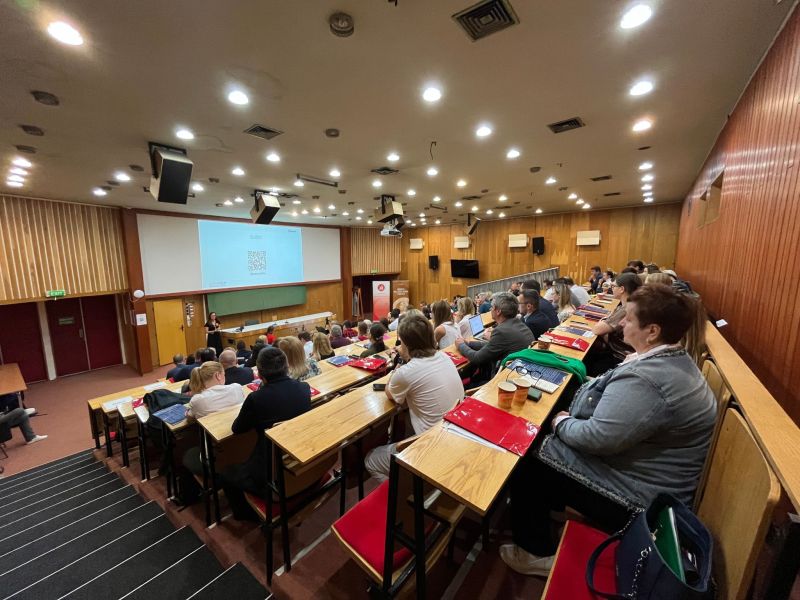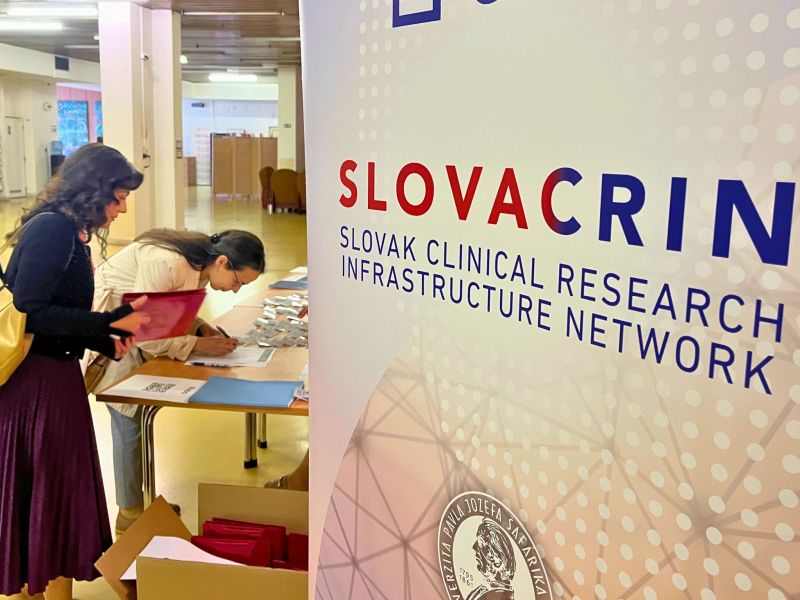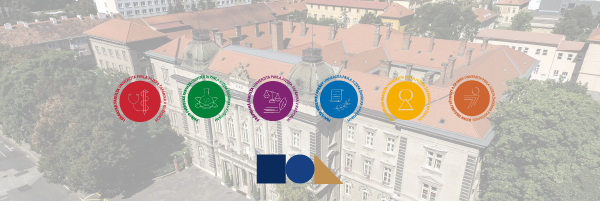On the occasion of the International Clinical Trials Day, a conference entitled “Clinical Research in Slovakia: where we are and where we would like to be” was held on Tuesday, 4 June 2024, at the Faculty of Medicine, UPJŠ, which highlighted the key role of clinical practice in advancing medical research and improving patient care. The event was organised under the auspices of the Ministry of Health of the Slovak Republic and the Ministry of Education, Research, Development and Youth of the Slovak Republic and was hosted by SLOVACRIN, the national hub for academic clinical trials in Slovakia, operating under the Pavol Jozef Šafárik University in Košice and under the patronage of the UPJŠ Faculty of Medicine.
The programme was opened with a speech by the Rector of UPJŠ in Košice and the Director General of the SLOVACRIN infrastructure, professor Daniel Pella, MD, PhD., who stated that clinical research brings new treatment options for patients and new alternatives for doctors. “Clinical research fundamentally shapes the development of healthcare in a given country and we are glad that the systemic support from the state is gradually becoming established in Slovakia as well.”
After the speech of the Dean of the UPJŠ Faculty of Medicine, professor Peter Jarčuška, MD, PhD., who highlighted the importance of clinical trials and the unstoppable dynamics of scientific research, followed the contributions of experts from the Research and Innovation Authority, the Ministry of Education, Research, Development and Youth of the Slovak Republic, the Ministry of Health of the Slovak Republic, the national nodes of the ECRIN infrastructure in the Slovak Republic SLOVACRIN and the Czech Republic CZECRIN, the State Institute for Drug Control, the Association of the Innovative Pharmaceutical Industry and other speakers.
The presentations provided different perspectives on the conduct of clinical trials and raised the topic of emerging problems and possible solutions for the future to improve the environment for conducting clinical trials and competitiveness in the European space. The discussion brought, among other things, innovative treatment options linked to ongoing research closer to Slovak patients. However, as the Medical Director of SLOVACRIN, Beata Čečetková, MD, emphasised, “whether it is new pharmaceuticals and medical devices, including software, innovative treatment methods or the use of artificial intelligence in healthcare, putting innovation into practice must always be preceded by high-quality clinical research.”


















